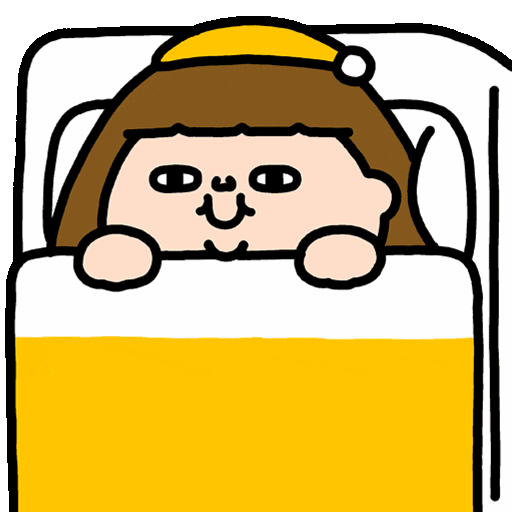- Snowy Mountains
- Posts
- 🌝🌙5 Foods You Should Never Eat Before Bed – Transform Your Night’s Sleep!
🌝🌙5 Foods You Should Never Eat Before Bed – Transform Your Night’s Sleep!
Are These Foods Ruining Your Sleep? Discover the Shocking Truth!

Imagine spending hours tossing and turning at night, unable to fall asleep despite your best efforts. The culprit? It could be the foods you’re eating before bed. You might be surprised to learn that certain foods can wreak havoc on your sleep, leading to restless nights and groggy mornings.
In this blog, we’ll uncover the top five foods you should never eat before bed. These insights will help you make informed choices to improve your sleep quality, boost metabolism, and support your overall health goals. Whether you’re a health enthusiast, fitness beginner, or seasoned athlete, avoiding these foods will pave the way for a more restful and rejuvenating sleep.
Watch this video on our socials. Stay tuned for more updates on what's to come! Like & follow our content to keep us going!
1. Spicy Foods: The Fiery Culprits Behind Sleepless Nights
Do you love a bit of spice in your evening meals? It’s time to reconsider.
Spicy foods can cause indigestion and heartburn, making it difficult to fall asleep. Capsaicin, the compound responsible for the heat in spicy foods, can raise your body temperature and disrupt sleep. Eating spicy foods before bed can lead to discomfort and a restless night.
Sarah, a health enthusiast, used to enjoy spicy dinners. After experiencing frequent nighttime discomfort and poor sleep, she switched to milder meals in the evening and noticed a significant improvement in her sleep quality.
What You Can Do:
Opt for milder dinners: Choose foods that are gentle on your stomach.
Eat spicy foods earlier: Enjoy your spicy meals at lunch instead of dinner.
Stay hydrated: Drinking water can help reduce the intensity of spices.
2. Caffeine: The Sneaky Stimulant Keeping You Awake
Think that late-night coffee won’t affect your sleep? Think again.
Caffeine is a powerful stimulant found in coffee, tea, chocolate, and many sodas. Consuming caffeine before bed can interfere with your ability to fall asleep and reduce sleep quality. It can stay in your system for up to six hours, making it harder to wind down and relax.
Tom, a fitness beginner, used to drink coffee late into the evening. After struggling with insomnia, he cut out caffeine in the late afternoon and experienced more restful nights.
What You Can Do:
Avoid caffeine in the evening: Stick to decaf options or herbal teas.
Be mindful of hidden caffeine: Check labels on snacks and medications.
Create a calming bedtime routine: Incorporate relaxing activities to wind down.
3. High-Sugar Snacks: The Sweet Saboteurs of Sleep
Are your favorite sugary treats stealing your rest?
High-sugar snacks, such as candies, cookies, and cakes, can cause a spike in blood sugar levels followed by a crash. This rollercoaster effect can lead to restlessness and interrupted sleep. Consuming sugar before bed can also increase the risk of nightmares and disrupt the natural sleep cycle.
Emily, a weight loss seeker, used to indulge in sweet treats before bed. After eliminating sugary snacks from her evening routine, she noticed a marked improvement in her sleep patterns and overall energy levels.
What You Can Do:
Choose healthier snacks: Opt for fruits, nuts, or yogurt.
Limit sugar intake: Be mindful of hidden sugars in processed foods.
Create a balanced evening meal: Ensure it includes protein, healthy fats, and fiber.
4. Fatty Foods: The Heavyweights Holding You Down
Do you love late-night fast food runs? Here’s why you should stop.
Fatty foods, like burgers, fries, and pizza, take longer to digest and can cause discomfort and bloating. Eating these foods before bed can lead to indigestion and acid reflux, making it hard to fall asleep. They can also disrupt the natural sleep cycle and reduce overall sleep quality.
Jake, an athlete, used to enjoy fast food dinners. After experiencing poor sleep and sluggish mornings, he switched to lighter, healthier evening meals and saw a significant improvement in his performance and energy levels.
What You Can Do:
Opt for lighter meals: Choose lean proteins, vegetables, and whole grains.
Avoid eating right before bed: Allow 2-3 hours between your last meal and bedtime.
Stay hydrated: Drink water throughout the day to aid digestion.
5. Alcohol: The Deceptive Nightcap
Think that nightcap is helping you sleep? It’s not.
Alcohol may make you feel drowsy, but it actually disrupts sleep quality. It can interfere with the REM sleep cycle, leading to fragmented sleep and frequent wake-ups. Alcohol also has diuretic effects, which can cause nighttime bathroom trips and dehydration.
Mark, a fitness buff, used to have a glass of wine before bed to relax. After noticing frequent awakenings and groggy mornings, he cut back on alcohol and enjoyed more restful and uninterrupted sleep.
What You Can Do:
Limit alcohol intake: Enjoy alcohol in moderation and avoid it close to bedtime.
Hydrate well: Drink plenty of water throughout the day.
Create a relaxing bedtime routine: Use other methods, like reading or meditation, to unwind.
Conclusion
Avoiding certain foods before bed can significantly enhance your sleep quality and overall health. By steering clear of spicy foods, caffeine, high-sugar snacks, fatty foods, and alcohol, you can support a healthy diet, boost metabolism, and enjoy a more restful night’s sleep.
Making informed food choices in the evening is crucial for maintaining optimal health and well-being. Start by eliminating these five foods from your bedtime routine and experience the positive changes in your sleep and energy levels.
✨✨For more tips on maintaining a healthy diet, explore our other blog posts. Remember to subscribe and share this blog with friends who might benefit from these insights. Stay healthy and energized!⭐✨🌟

